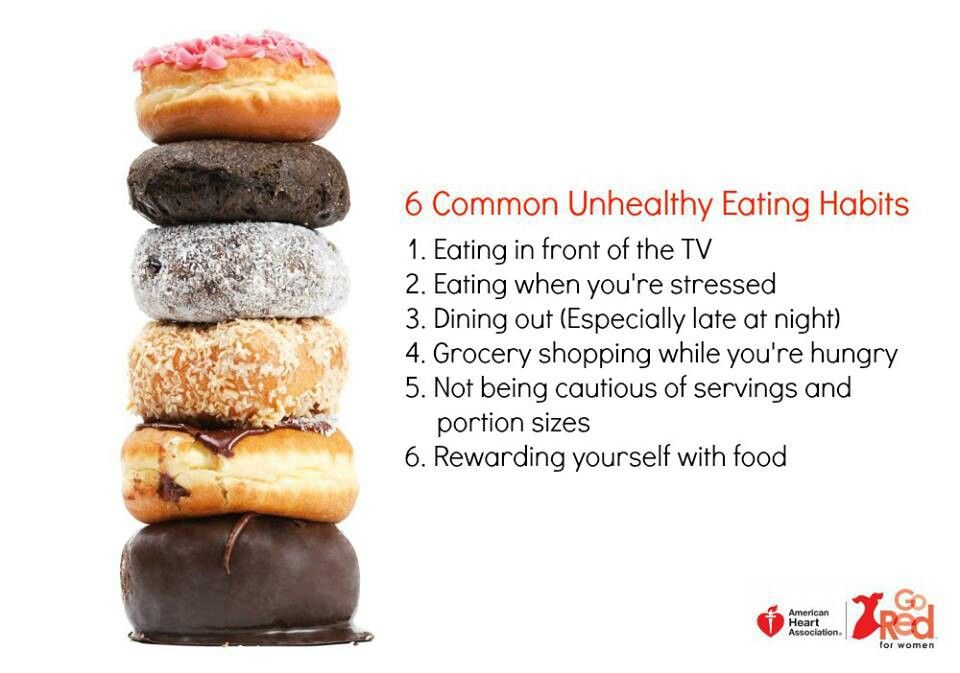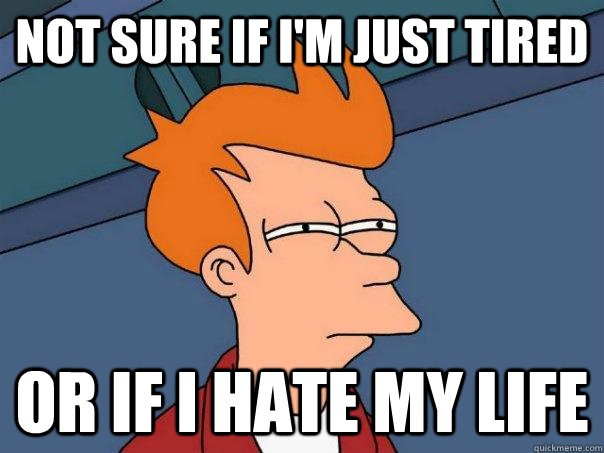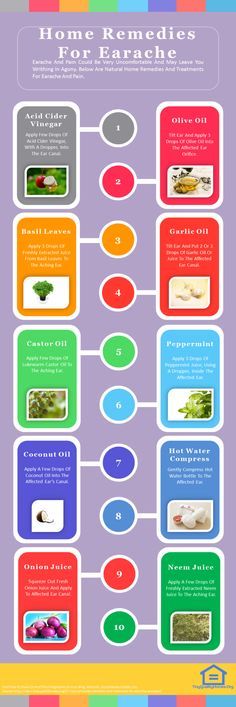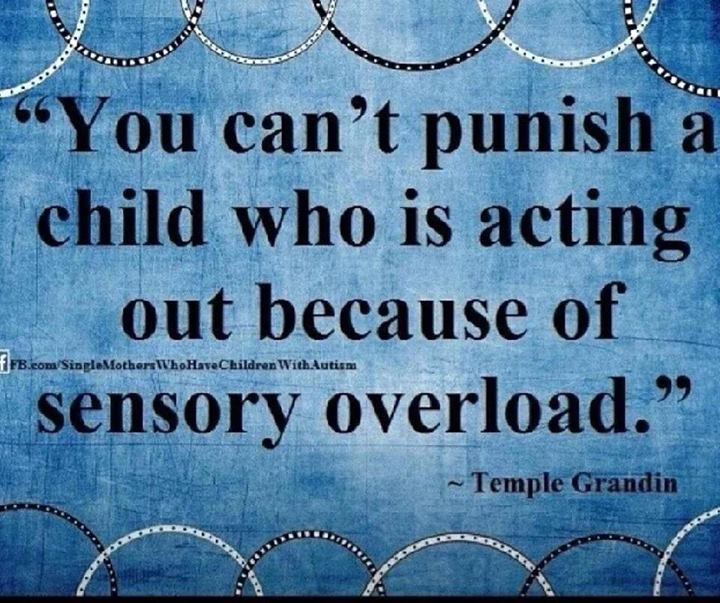How to change unhealthy eating habits
Breaking Bad Eating Habits and How They Affect Your Diet
How to overcome unhealthy habits that are keeping you from losing weight and getting fit.
Written by Kathleen M. Zelman, MPH, RD, LD
Most of us are creatures of habit. We buy the same foods from the same grocery store, prepare the same recipes over and over, and live within our own familiar routines. But if you're serious about eating healthier and losing weight, you need to shake it up, change those bad eating habits, and start thinking differently about your diet and lifestyle.
The problem is that we get so comfortable in our ways that it's hard to give up those old habits.
"Many people are skeptical about changing their diets because they have grown accustomed to eating or drinking the same foods, and there is a fear of the unknown or trying something new," says John Foreyt, PhD, director of the Baylor College of Medicine Behavioral Medicine Research Center.
Even when you want to change, old habits die hard.
"Over time, habits become automatic, learned behaviors, and these are stronger than new habits you are trying to incorporate into your life," says Foreyt.
Even those who manage to change their bad eating habits can easily fall back on their old ways during times of stress. When you're feeling weak or vulnerable, automatic responses often override good intentions.
"Everything can be going along just fine until you hit a rough patch and feelings of boredom, loneliness, depression, or ... any kind of stress," says Foreyt.
Foreyt says tackling bad eating and exercise habits requires a three-pronged approach:
- Being aware of the bad habits you want to fix.
- Figuring out why these habits exist.
- Figuring out how you'll slowly change your bad eating and exercise habits into healthier new ones.
Another expert notes that you're much more likely to be successful at changing your habits if you take things one step at a time. "Try to gradually incorporate new habits over time, and before you know it, you will be eating more healthfully and losing weight," says Keri Gans, MS, RD, American Dietetic Association spokesperson and a nutritionist in private practice in New York.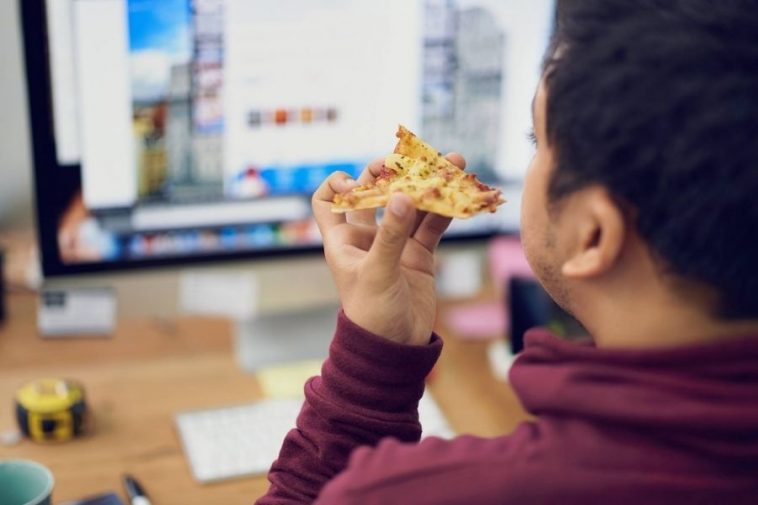
Eating a healthier diet may be intimidating at first. But once you see for yourself how good it makes you feel -- and how good healthy food can taste -- you have a better chance of succeeding. Over time, your preferences will change and cravings for bad-for-you foods will fade away.
Here are 6 steps to help you get rid of your old, unhealthy habits and create healthier ones:
1. Take Baby Steps. Making small changes in your diet and lifestyle can improve your health as well as trim your waistline. Some suggestions from the experts:
- Start each day with a nutritious breakfast.
- Get 8 hours of sleep each night, as fatigue can lead to overeating.
- Eat your meals seated at a table, without distractions.
- Eat more meals with your partner or family.
- Teach yourself to eat when you're really hungry and stop when you're comfortably full.
- Reduce your portion sizes by 20%, or give up second helpings.
- Try lower-fat dairy products.
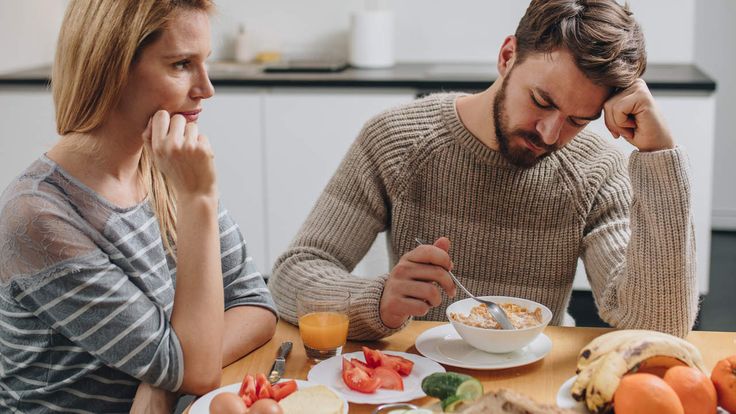
- Make sandwiches with whole-grain bread and spread them with mustard instead of mayo.
- Switch to cafe au lait, using strong coffee and hot skim milk instead of cream.
- Eat a nutritious meal or snack every few hours.
- Use nonstick pans and cooking spray instead of oil to reduce the fat in recipes.
- Try different cooking methods, such as grilling, roasting, baking, or poaching.
- Drink more water and fewer sugary drinks.
- Eat smaller portions of calorie-dense foods (like casseroles and pizza) and larger portions of water-rich foods (like broth-based soups, salads, and veggies).
- Flavor your foods with herbs, vinegars, mustards, or lemon instead of fatty sauces.
- Limit alcohol to 1-2 drinks per day.
2. Become More Mindful. One of the first steps toward conquering bad eating habits is paying more attention to what you're eating and drinking. "Read food labels, become familiar with lists of ingredients, and start to take notice of everything you put into your mouth," says Gans.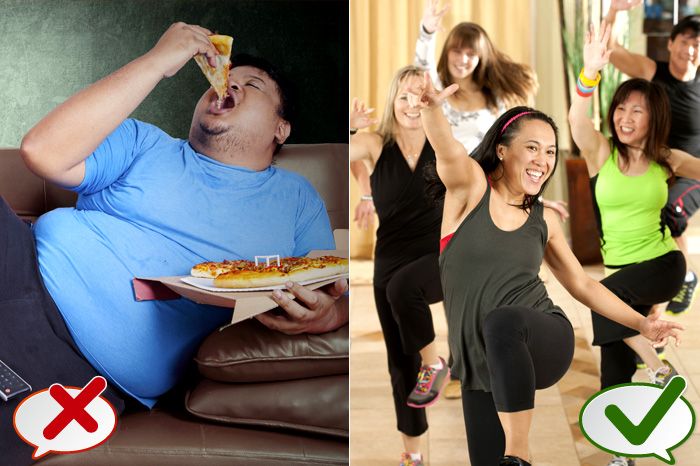 Once you become more aware of what you're eating, you'll start to realize how you need to improve your diet. Some people benefit by keeping food diaries.
Once you become more aware of what you're eating, you'll start to realize how you need to improve your diet. Some people benefit by keeping food diaries.
3. Make a Plan; Be Specific. How are you going to start eating more fruit, having breakfast every day, or getting to the gym more often? Spell out your options. For example: Plan to take a piece of fruit to work every day for snacks, stock up on cereal and fruit for quick breakfasts, and go to the gym on the way to work three times a week. "To say 'I am going to work out more,' won't help you," says Gans. "What will help is thinking about when and how you can fit it into your lifestyle."
4. Tackle a New Mini-Goal Each Week. These mini-steps will eventually add up to major change. For example, if your goal is to eat more vegetables, tell yourself you'll try one new veggie each week until you find some you really enjoy. Or look for easy ways to add one more serving of vegetables to your diet each week until you reach your goal.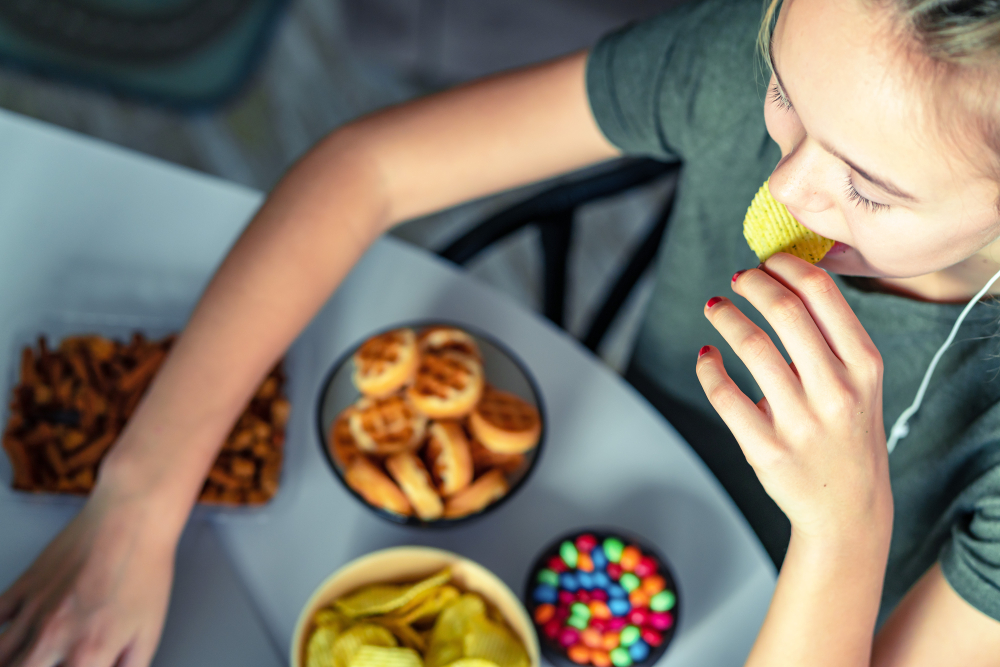 Try topping your lunch sandwich with slices of cucumbers; adding shredded carrots to the muffins you have for breakfast; or topping your dinnertime pizza with sun-dried tomatoes and mushrooms.
Try topping your lunch sandwich with slices of cucumbers; adding shredded carrots to the muffins you have for breakfast; or topping your dinnertime pizza with sun-dried tomatoes and mushrooms.
5. Be Realistic. Don't expect too much from yourself too soon. It takes about a month for any new action to become habit. Slow and steady wins the race -- along with a dose of vigilance.
6. Practice Stress Management. "Focus on dealing with stress through exercise, relaxation, meditation, or whatever works for you, so you don't fall back into those bad habits during periods of stress or use food to help you cope with the situation," advises Foreyt.
How to Change Unhealthy Eating Habits, According to Psychologists
- The first step to overcoming unhealthy eating habits is to identify the bad habits and understand why they exist.
- To successfully break bad eating habits, it's important to gradually incorporate small, manageable changes to your diet and lifestyle.
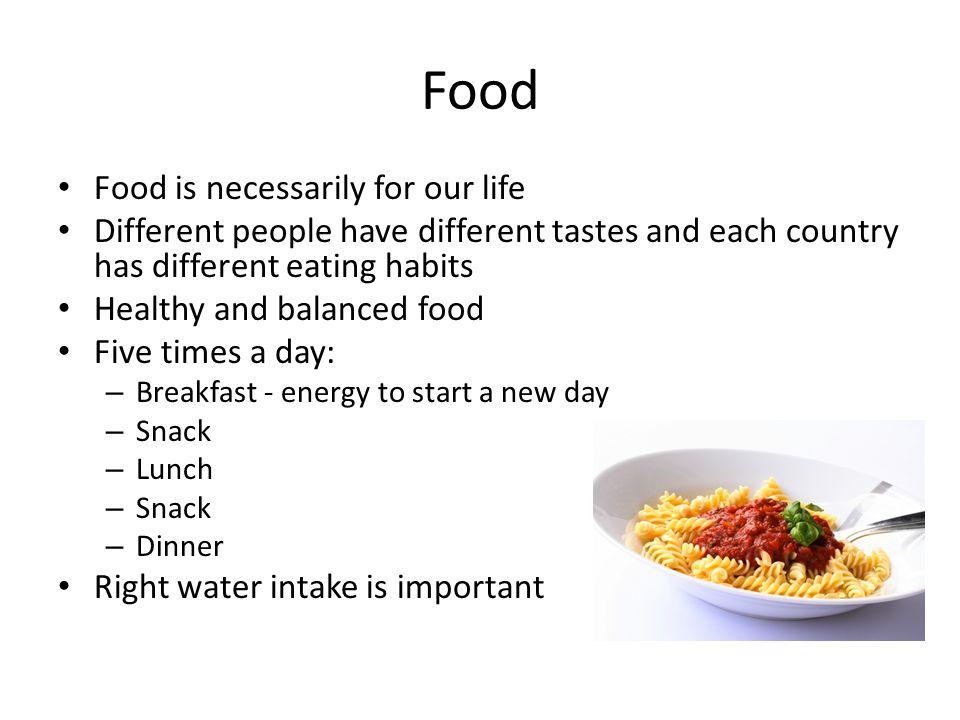
- If you fall back on a bad habit, be easy on yourself. One slip-up won't ruin your diet, psychologists say.
- This article is part of Insider's guide on How To Lose Weight.
Whether you're trying to lose weight or just eat healthier, sticking to a new diet is tough. Because you're not just breaking one eating habit but you're building a new one at the same time.
"My clinical approach with my clients is to gradually change a few number of factors first. Because we have a finite amount of willpower, and the more things we remove...the harder it is" says J. Ryan Fuller, PhD, a clinical psychologist and executive director of New York Behavioral Health who specializes in weight loss.
Breaking habits — especially the kind that trigger your brain's reward centers, like when you gorge on ice cream — takes time and effort.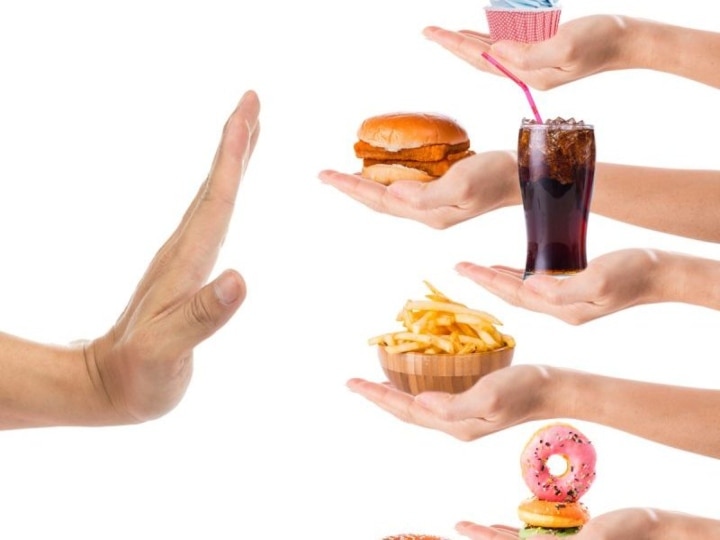
Here are the strategies that clinical psychologists who specialize in weight loss recommend if you want to change your diet habits in a safe, sustainable way.
How to break the habit of a poor diet"I advise people not even to call it a diet. That brings up all kinds of negative emotions and expectations, such as deprivation, rules, food logs, etc," says Kimberly M. Daniels, PsyD, who specializes in overeating and weight issues.
Daniels explains that when it comes to breaking bad habits, it is helpful to think of current habits in terms of self-care.
"Binge eating ice cream every night would easily be defined as a bad habit, but people do that to soothe or comfort themselves. So it's actually self-care. Self-care that doesn't get you anywhere good, but still self-care."
Daniels recommends trying to uncover why you are performing this self-care habit by asking yourself some questions.
- If you're eating ice cream every night, why?
- What are you avoiding?
- What are you distracting yourself from?
- Why do you feel the need to comfort yourself in that way?
Once you understand your reasons more clearly, you can start to address the real cause of the behavior and break the bad habit.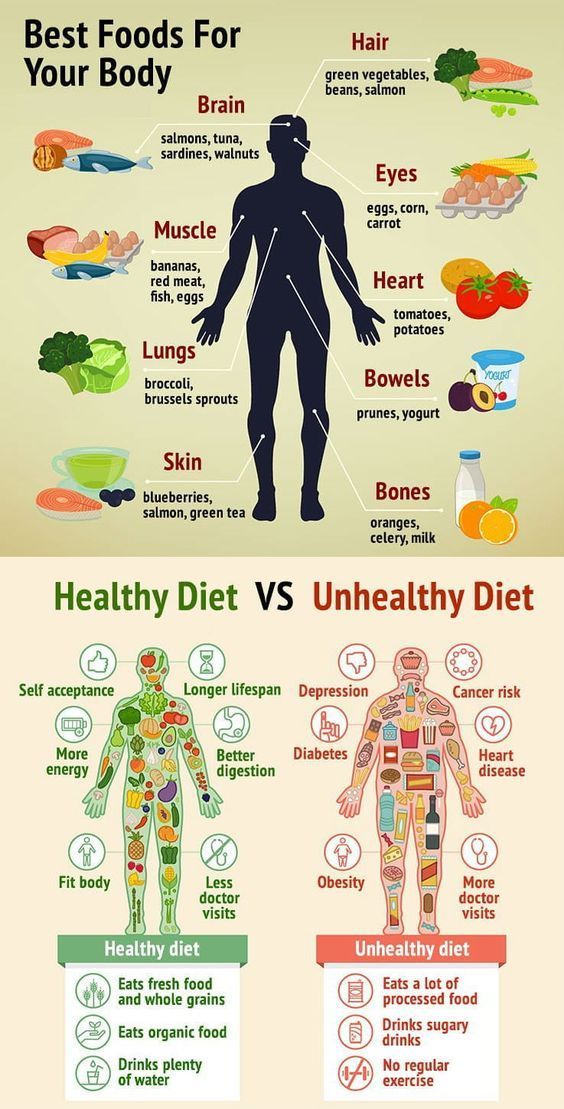 For example, "if you're eating ice cream every night because you're lonely, how can you boost your social connections?" says Daniels.
For example, "if you're eating ice cream every night because you're lonely, how can you boost your social connections?" says Daniels.
When developing better eating habits, mental setbacks are a natural part of the process. Try following these three pieces of advice when you first start tackling a new habit:
- Manage your expectations: "I often find that people feel unworthy of something better," says Daniels. "Many people feel horrible about themselves." So, as you develop good habits, it's important that they're not only good by nature but that they make you feel good, too.
To achieve that, it's important to manage your expectations accordingly. For example, Daniels says that happiness is often an expectation for those who lose weight. When happiness doesn't necessarily occur, they give up.
What research says: A 2014 study that analyzed 1,979 patients over four years found that there wasn't a significant psychological benefit for those who lost weight versus those who either gained or remained at their starting weight.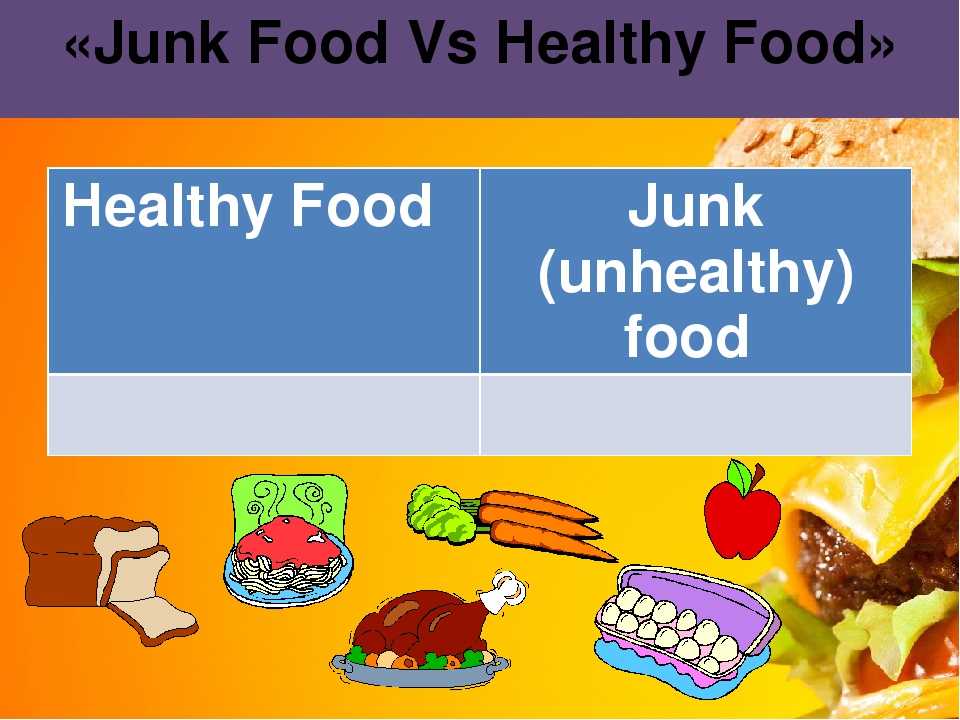 In fact, patients who were trying to lose weight reported feeling a more depressed mood.
In fact, patients who were trying to lose weight reported feeling a more depressed mood. That's why being realistic with yourself about what you hope to accomplish by adopting healthier eating habits is essential. If it is to lose weight, ask yourself why is this important to you, and what do you expect to gain from losing weight? "It's extremely important to make your expectations realistic," says Daniels.
- Set realistic goals: Set realistic goals when it comes to implementing new eating habits. Overloading yourself with too many changes at once can become overwhelming.
"I always say slow and steady wins the race. Traditional diets don't work because they ask you to make 27 changes all at the same time. That's impossible", Daniels says. She suggests choosing one or two simple aspects of your diet that you'd like to work on at a time and don't make any other changes until you have those down.
- Focus on adding foods, not cutting them: As you start to make those changes, focus on adding healthy foods into your diet rather than on cutting unhealthy foods out, such as sugar or carbs.
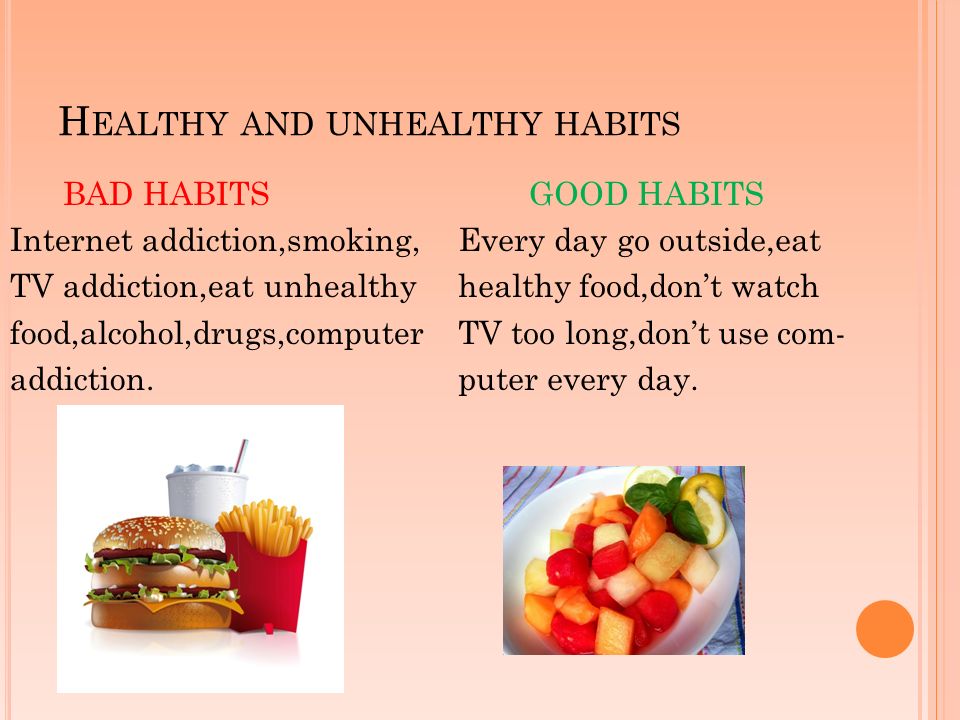 Removing foods makes you feel deprived. Whereas adding foods gives you a sense of accomplishment.
Removing foods makes you feel deprived. Whereas adding foods gives you a sense of accomplishment.
When starting a diet, you might have a day or a week where you go off your diet or indulge in food you're trying to cut out. If this happens, Fuller says the best thing you can do is get right back on your diet the next day.
"It's not as though even a day slip or a week-long slip has to totally change their outcome. It simply slows it down or delays it by a week," says Fuller. "I help my clients practice self-compassion and acceptance even when they make a mistake. I help them recognize they can just start over in terms of being back on plan the next day."
In the end, it's all about sticking with your new habit long-term.
What research says: A 2005 review analyzed the data of 4,000 patients listed in the National Weight Control Registry and determined that those who kept weight off for two to five years after beginning their diet were able to maintain healthy lifestyle habits afterward.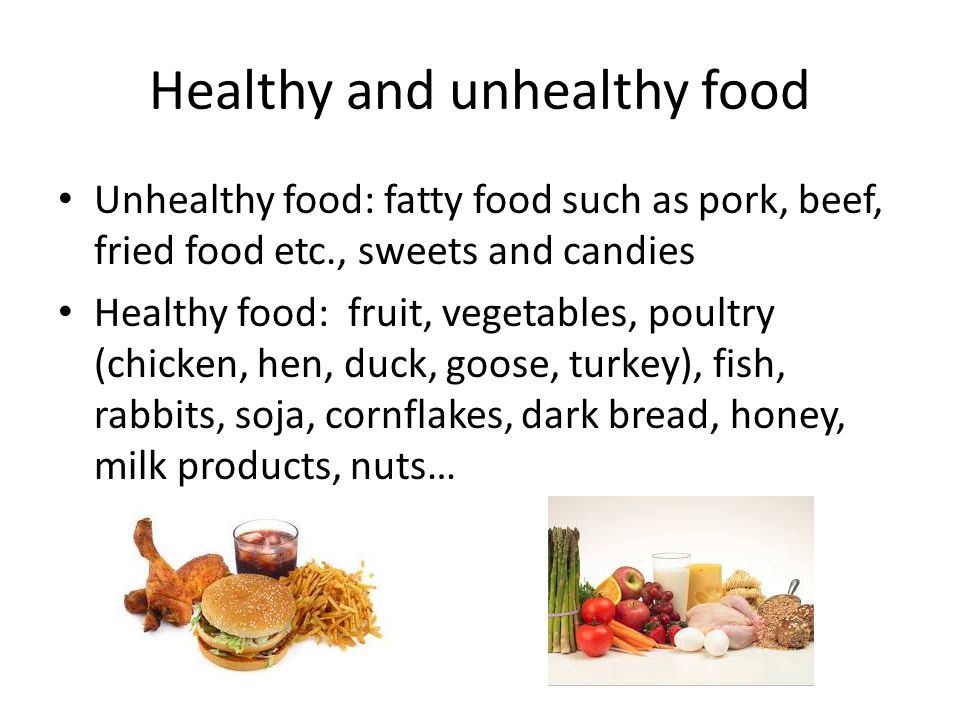
Daniels explains that in the beginning, you will be very aware of what you're eating all the time. Thinking about whether or not you are hungry and if not, why you're choosing to eat is something that takes practice.
Daniels also says recognizing what might trigger a slip-up can help you avoid them in the future.
Insider's takeaway
You know you can stick to a new diet when that diet no longer feels new and becomes second nature. To achieve that, it's as the saying goes "practice makes perfect" and sticking to your new healthy eating pattern is no exception.
"That does get easier over time, especially if you realize you have patterns such as always eating when you're tired or bored. Once you realize this, you can plan for it and avoid it," says Daniels.
If you do slip-up, know you can get back on track the next day. Taking a gradual approach to changing your dietary habits will be more sustainable in the long-term than taking an "all or nothing" approach.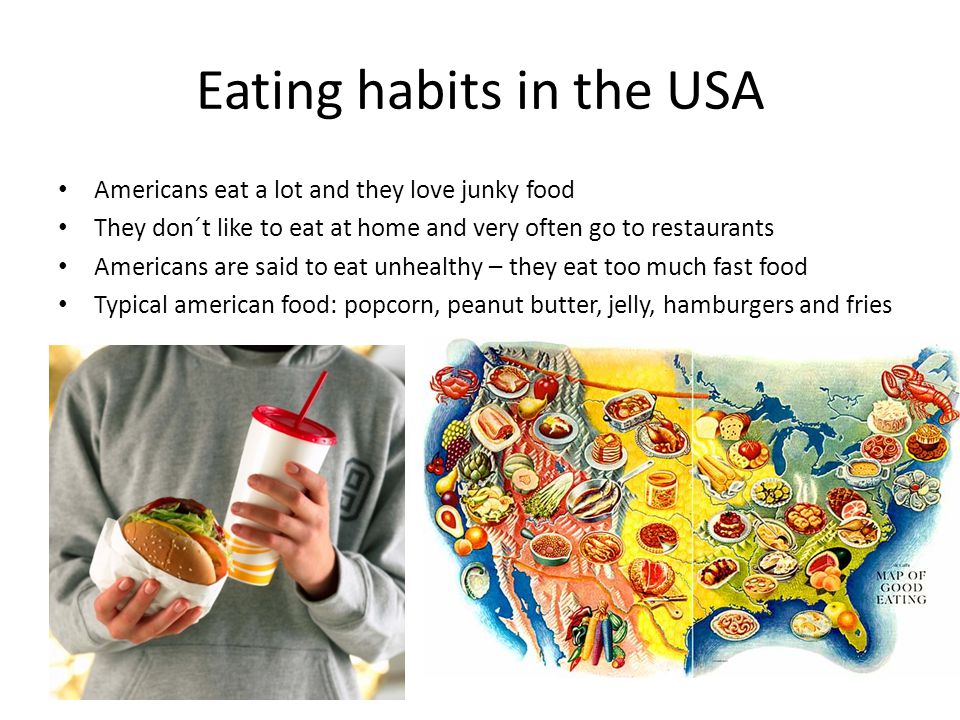
- Why you may not be losing weight on the keto diet
- What is resistant starch and why it's healthier than simple starch
- What the different types of carbs are and how they can affect your health
- What is the Paleo diet and whether it helps you lose weight
- Does intermittent fasting work? Research doesn't have a definite answer for its long-term effects
Rachel MacPherson
Rachel MacPherson is a freelance writer for Insider.
Read moreRead less
Katie Walsh
Health Editorial Fellow
Katie Walsh is a Health Editorial Fellow for the Health Reference desk at Insider. Katie is a recent graduate of Davidson College where she majored in English and spent most of her time editing her college newspaper and baking for a local cafe.
Katie is a recent graduate of Davidson College where she majored in English and spent most of her time editing her college newspaper and baking for a local cafe.
Read moreRead less
Five tips to help change unhealthy eating habits. Reedus
Five tips to help change unhealthy eating habits. reedus- Useful
- Food
- Health
4 0 6402
- January 22, 2021, 21:49
- Stanislav Timonov, journalist for Reedus
Proper nutrition is very important for daily well-being and overall health, especially for those people who are at risk of developing serious diseases (diabetes, heart disease, etc.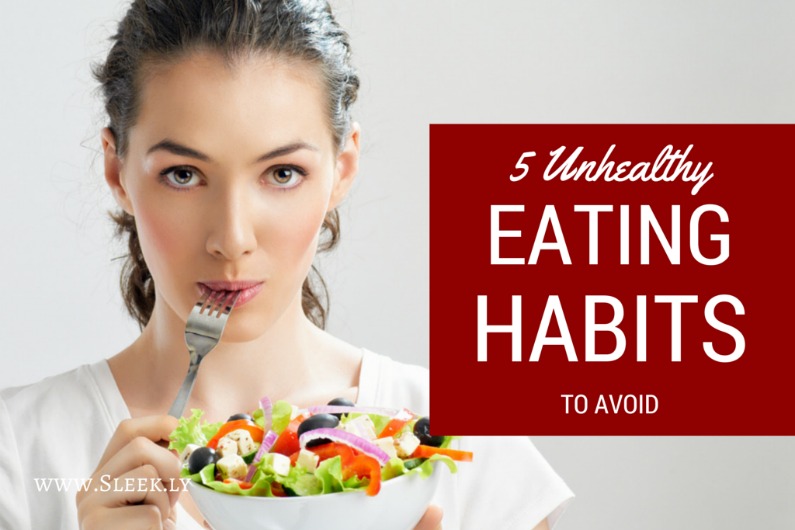 ). But following a healthy diet is sometimes not at all easy, as we are constantly drawn to return to old eating habits. Getting rid of such habits takes time and effort, because goodies fire up our brain's reward centers, and the brain is not inclined to give up something pleasant so easily.
). But following a healthy diet is sometimes not at all easy, as we are constantly drawn to return to old eating habits. Getting rid of such habits takes time and effort, because goodies fire up our brain's reward centers, and the brain is not inclined to give up something pleasant so easily.
However, this does not mean that it is impossible to change unhealthy eating habits. Psychologists and nutritionists advise to start eating healthy food gradually, without strong restrictions and violence against yourself. Here are some simple ways to make healthy eating a part of your life without strict prohibitions.
Treat the new habit as self-care
To keep the new habit as less unpleasant as possible, think of it in terms of self-care. It is also worth looking into the reasons why you have unhealthy eating habits, such as eating fast food after work or eating a big bucket of ice cream after a fight with loved ones. We often use food to relieve boredom, relieve stress, etc. By finding out the reasons for your addiction to junk food, you can find healthier ways to satisfy the need that you usually try to cover with tasty treats.
By finding out the reasons for your addiction to junk food, you can find healthier ways to satisfy the need that you usually try to cover with tasty treats.
© pexels.com
Manage your expectations
Many people (especially those who are trying to lose weight) who decide to eat right expect to be happier right away, and when happiness does not come, they give up and come back to old habits. Therefore, it is very important to manage your expectations and understand that at first you will face difficulties and, perhaps, from time to time your mood will be below the baseboard. Stay realistic and think about what you want to achieve with healthy eating habits. Ask yourself regularly why this is important to you.
Set realistic goals
Ambitious goals are great, but when it comes to introducing new eating habits, set yourself modest but realistic and easily achievable goals. A very difficult goal and a lot of changes that will be necessary to achieve it can overwhelm you. You don't have to make a million changes at once, pick one or two aspects of your habitual diet that you would like to change and work on them. And only then start changing something else.
You don't have to make a million changes at once, pick one or two aspects of your habitual diet that you would like to change and work on them. And only then start changing something else.
© pexels.com
Don't berate yourself too much for mistakes
Change is almost always hard, so don't berate yourself too much for slipping away and eating a dish you didn't intend to eat. Accept your failure calmly and start over: return to a healthy diet again the next day. Sooner or later you will get used to a new diet, and you will no longer have reasons to break down.
Focus on adding products, not reducing them
As you begin to change your eating habits, focus on adding healthy foods to your diet rather than eliminating unhealthy foods. Eliminating favorite tasty treats makes you feel left out, while adding wholesome foods gives you a sense of accomplishment.
© pexels.com
Read also:
- Five simple ways to start eating right
- Scientists have told how to eat to increase calorie burning
- State Duma deputy: Moscow has fulfilled the mobilization plan in full
- Sergei Sobyanin reported on the completion of mobilization in Moscow
- Prices for November gas supplies to Europe fell sharply
How to change eating habits so that they take root
July 24, 2017
55636 views
- Ekaterina Jensen
- Nutritionist and nutritionist.
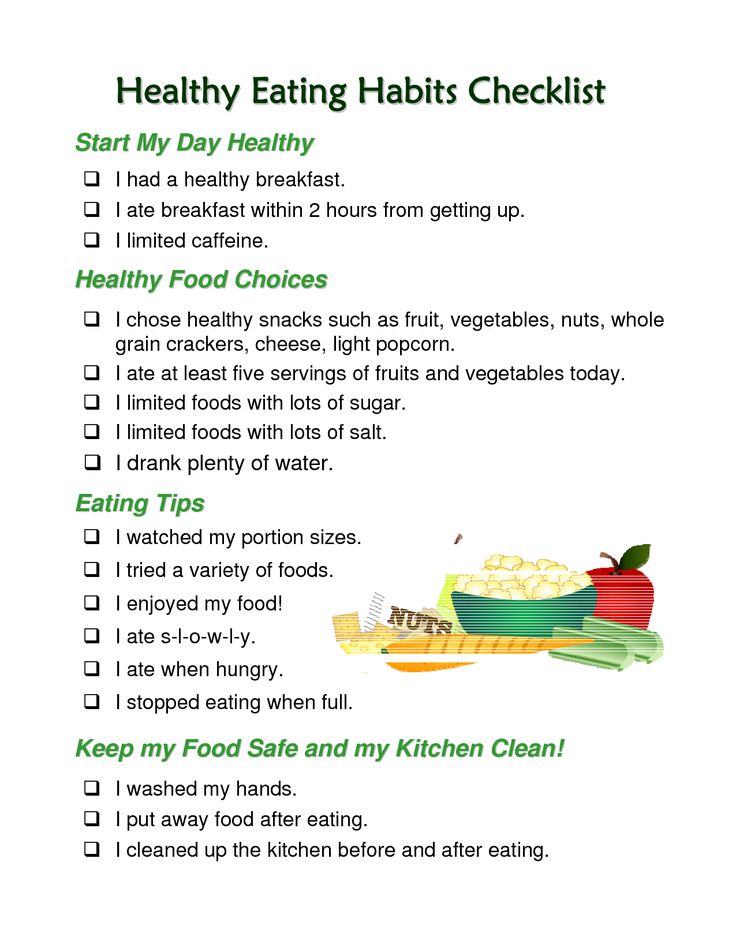 Founder of the Food for Life! project. I specialize not only and not so much in weight problems, but in the treatment of diseases with the help of nutrition. I see my mission in helping people become healthy on their own. My motto is "Health without drugs!" I believe that everything is in our hands - both happiness and health. I am an optimist, I love life and people with their exciting stories.
Founder of the Food for Life! project. I specialize not only and not so much in weight problems, but in the treatment of diseases with the help of nutrition. I see my mission in helping people become healthy on their own. My motto is "Health without drugs!" I believe that everything is in our hands - both happiness and health. I am an optimist, I love life and people with their exciting stories.
“It's easy for you to say, you're a nutritionist,” many friends tell me who believe that I eat right thanks to my profession. But it was not always so. And my eating habits have changed a lot.
I remember that at the age of twenty, like most of my peers, I ate the devil knows what: chips, food from McDonald's, beer flowed like a river along with carbonated alcoholic drinks. When I got older, the situation improved a little: I switched from frank fast food to what is called food: ready-made instant cereals, sausage sandwiches, canned food, store-bought Dancake rolls (today I look at them with horror and think: “ How!? How could you not only buy something like that, but also eat it?!" decorative vases - after all, in the meager space of Khrushchev, every centimeter is worth its weight in gold.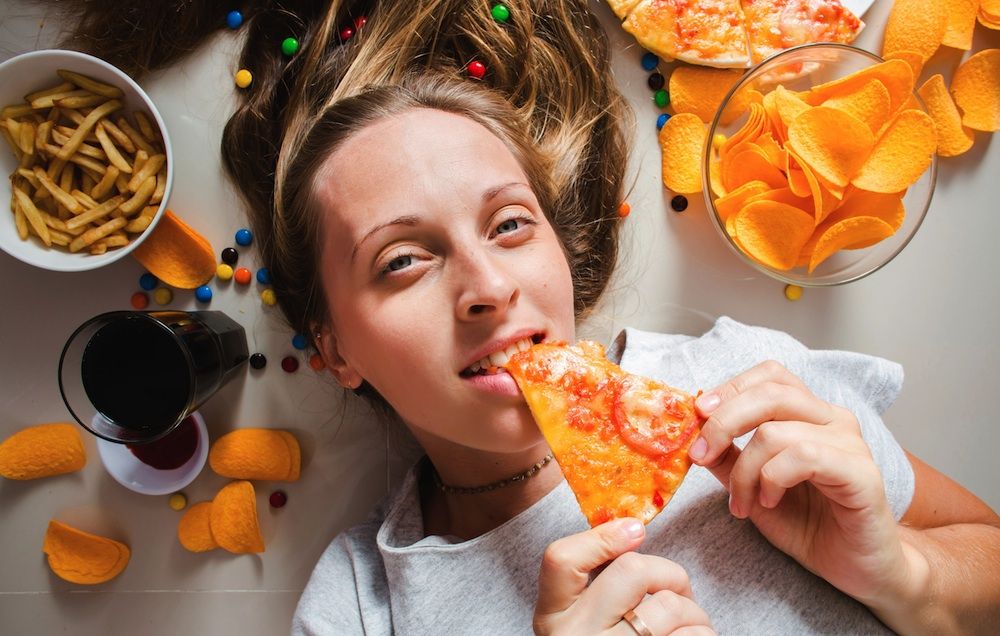 Probably, you have already guessed that I did not cook food, and I did not know how.0017
Probably, you have already guessed that I did not cook food, and I did not know how.0017
The only thing that kept me in check was the size of my clothes, which periodically threatened not to fit in the right places. Then I sharply pulled myself together, stopped eating altogether, and quickly returned to normal. But at the same time, despite my young age, my energy tended to zero, and my back and face were covered with acne. So, despite my slim figure, I could not wear clothes with an open back - although I so wanted to!
At the age of 26, I moved to Denmark and was taken in a different direction. I began to eat more natural food - my husband was a great cook. But still, this food was oh so far from a healthy diet: sweet rolls with chocolate for breakfast, national Danish sandwiches for lunch and pasta for dinner. Beer and wine, endless restaurant food and lots of bread (by the way, in Denmark they eat A LOT of bread). After quitting smoking, I tasted the real taste of food and fell in love with it even more. This pushed me to finally start learning how to cook.
My biggest discovery was giving up sugar seven years ago. For two months I completely refused not only frank sweets and pastries, but also dried fruits with honey. I lost weight slightly (for the sake of this, everything was started), but I got rid of sugar addiction, along with this, my ideas about the usual food completely changed. After all, when we do not eat sweets, all other tastes are felt differently.
Further, more. I learned how to cook, and convenience foods completely disappeared from my life. I began to pay attention to the composition of the products. I remember my shock at the set of ingredients that I had to put in cookies according to the recipe. I could not even imagine that in such a small piece there could be SO MUCH butter and sugar!
Then I started studying to be a nutritionist, and this long-term process finally changed my attitude not only to food, but also to health in general.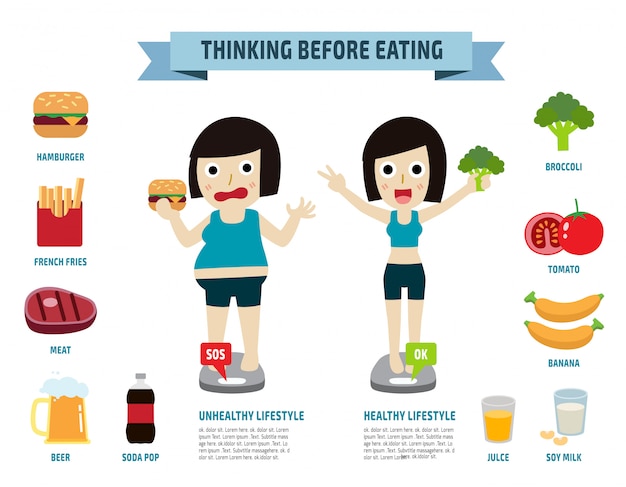 I remember that in the first lessons, where we were told about the dangers of gluten and milk, I sat and thought, “Well, they figured it out! Is milk something you didn’t like!? Useful product." It took me several years to gradually eliminate dairy from my life. Haven't gotten around to gluten yet. But not all at once!
I remember that in the first lessons, where we were told about the dangers of gluten and milk, I sat and thought, “Well, they figured it out! Is milk something you didn’t like!? Useful product." It took me several years to gradually eliminate dairy from my life. Haven't gotten around to gluten yet. But not all at once!
Today I eat only natural food, cook well and even come up with recipes for fast, tasty and healthy food myself. Purchased sweets, fast food, semi-finished products, beer, chips, soda, milk, coffee, sugar, white bread and other harmful things have gone from my life forever. In return, I received an unprecedented level of energy, clear skin, excellent health and, to be shy, excellent health.
In general, I have a very, very rich experience in acquiring healthy habits. So let me share them with you.
I won't talk about willpower and motivation. Of course, both will not be superfluous at all, but this is not the main thing. There are several factors that REALLY prevent us from replacing a bun with a carrot.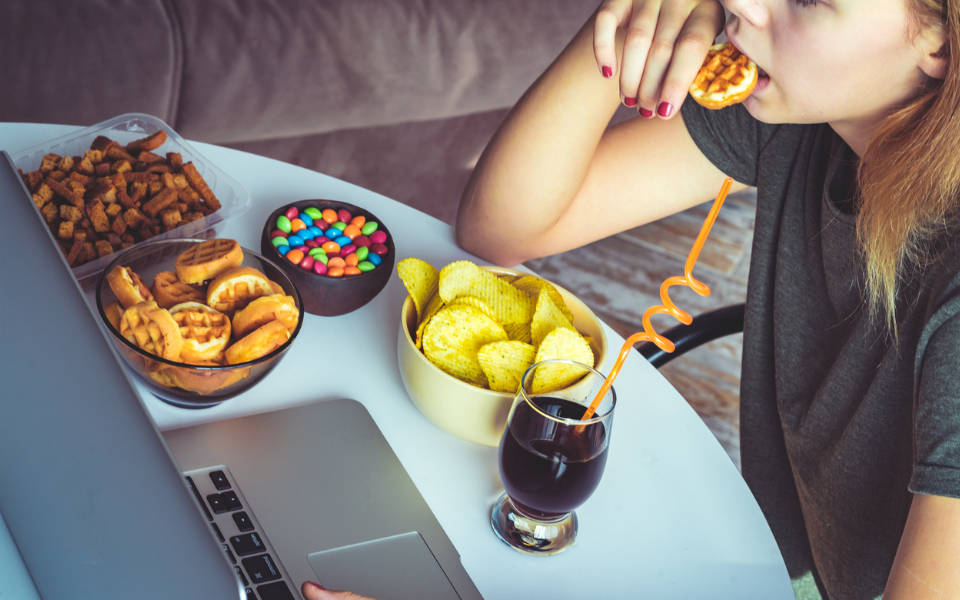 This is what I want to tell you about. Forewarned is forearmed.
This is what I want to tell you about. Forewarned is forearmed.
In my experience, there are several main reasons why people find it difficult to change their eating habits.
Reason one: gut microflora
Why can't I, being used to vegetables, eat even the most hearty classic Danish dinner "meat - potatoes - fatty sauce - pie for dessert"? And why can't a McDonald's lover be forced to eat a vegetable salad, and if this happens, he, regardless of the size of the portion, will remain hungry? Everything is ridiculously simple.
Several studies have confirmed the relationship between our taste habits and the composition of the intestinal microflora. According to some reports, ten times more bacteria live in our body than our own cells. For others, their number is the same. But not the point. The main thing is that these bacteria are incredibly abundant! They all live, reproduce and produce waste products of their life, like any living creature.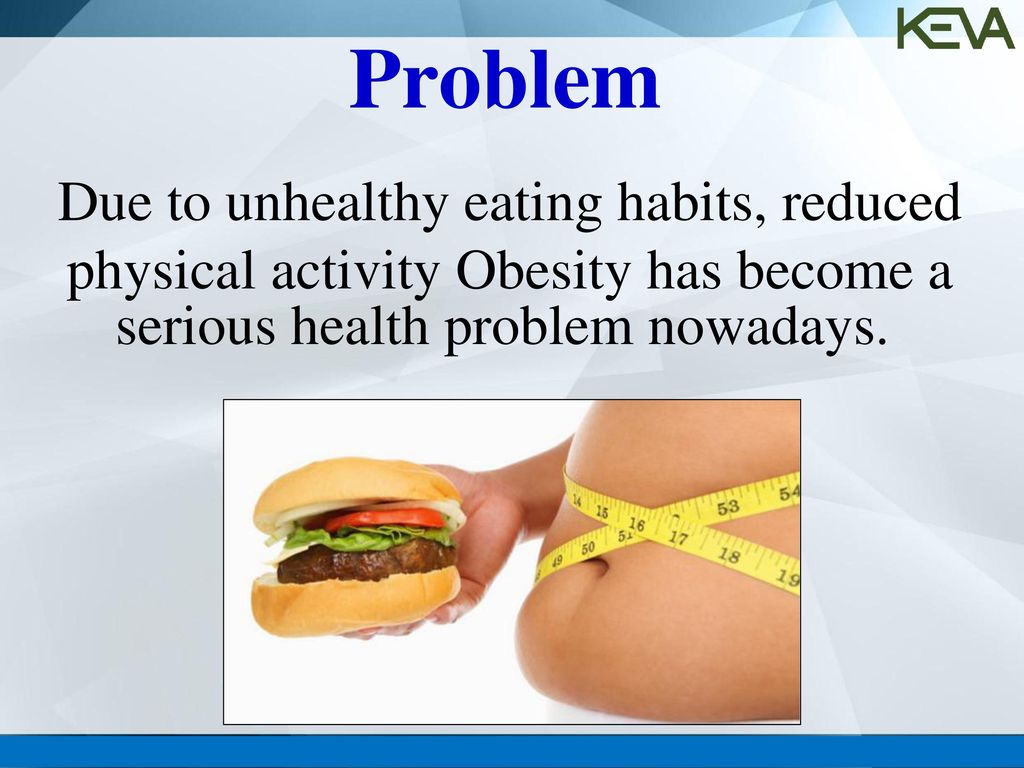 During all these processes, various chemicals are produced that change our mood and behavior, and yes - taste preferences! This is a fact proven by science.
During all these processes, various chemicals are produced that change our mood and behavior, and yes - taste preferences! This is a fact proven by science.
Why do I advise eating vegetables and fiber? Because it is the food of beneficial bifidobacteria, which ideally should prevail in our intestines. They, like everyone else, need the right food to be able to win back space on the walls of the intestine. If there are a lot of them, then you, like me, will be unbearably craving salad and other vegetable dishes. In fact, not to maintain the image.
Now let's see what happens if your intestines are dominated by bacteria and fungi that feed on yeast and sugar (sugar comes not only from sweets, but also from all flour products and refined cereals). In this case, you will adore everything sweet and starchy.
For example, a lot of my clients directly beg me not to remove bread from their diet. And not everyone is ready to part with sugar. Having eliminated harmful sweets, they replace them with “healthy” ones: dried fruits, fruits, and cereals with honey.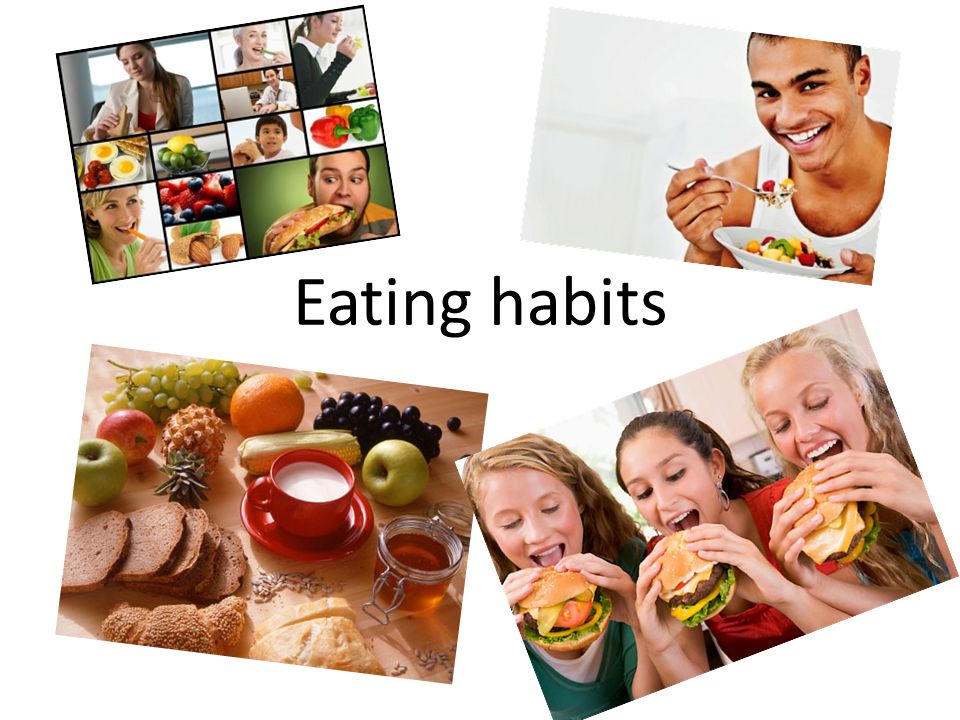 And then they are perplexed: “I’m so smart, I removed everything harmful, but the weight is worth it, and my health has not improved.” And everything is simple: sugar was replaced with ... sugar with vitamins . The same thing happens when you change white rice to brown: yes, the second one is healthier, but still your microflora cannot survive without vegetables.
And then they are perplexed: “I’m so smart, I removed everything harmful, but the weight is worth it, and my health has not improved.” And everything is simple: sugar was replaced with ... sugar with vitamins . The same thing happens when you change white rice to brown: yes, the second one is healthier, but still your microflora cannot survive without vegetables.
What to do:
Start taking probiotics. Thus, you will add new colonies of beneficial bifidobacteria to the intestines. But! Without the introduction of vegetables into the diet, the effect of probiotics from the jar will be temporary. It is not enough to add bacteria to the intestines, you still need to feed them. Do you water your flowers in pots? You also need to take care of your microflora - supply it with everything you need: fiber from vegetables. It will be difficult at first, so go to the goal in small steps: add at least one vegetable, but to EVERY meal.
Be it a tomato or a cucumber, but one vegetable should always be on your plate. And then there will be more beneficial bacteria, your taste preferences will gradually change, and it will be easier for you to choose a salad rather than a hamburger.
And then there will be more beneficial bacteria, your taste preferences will gradually change, and it will be easier for you to choose a salad rather than a hamburger.
Important: before buying probiotics, consult your doctor or nutritionist, who will select the drug that is right for you.
Reason Two: Physiological Addiction
You can't just change your eating habits, also because many foods are actually physiologically addictive. For example, experiment on rats showed that sugar is more addictive than cocaine! Now you understand why it is so difficult to live without the usual candy? Why do you not only feel a strong desire to eat it, but even your mood deteriorates and you experience slight (or strong) anxiety, cannot concentrate, and so on? These are signs of physiological dependence. And if everything is simple with cocaine (expensive, out of stock and illegal), then with sugar it’s a completely different story - it’s not just legal, it’s EVERYWHERE.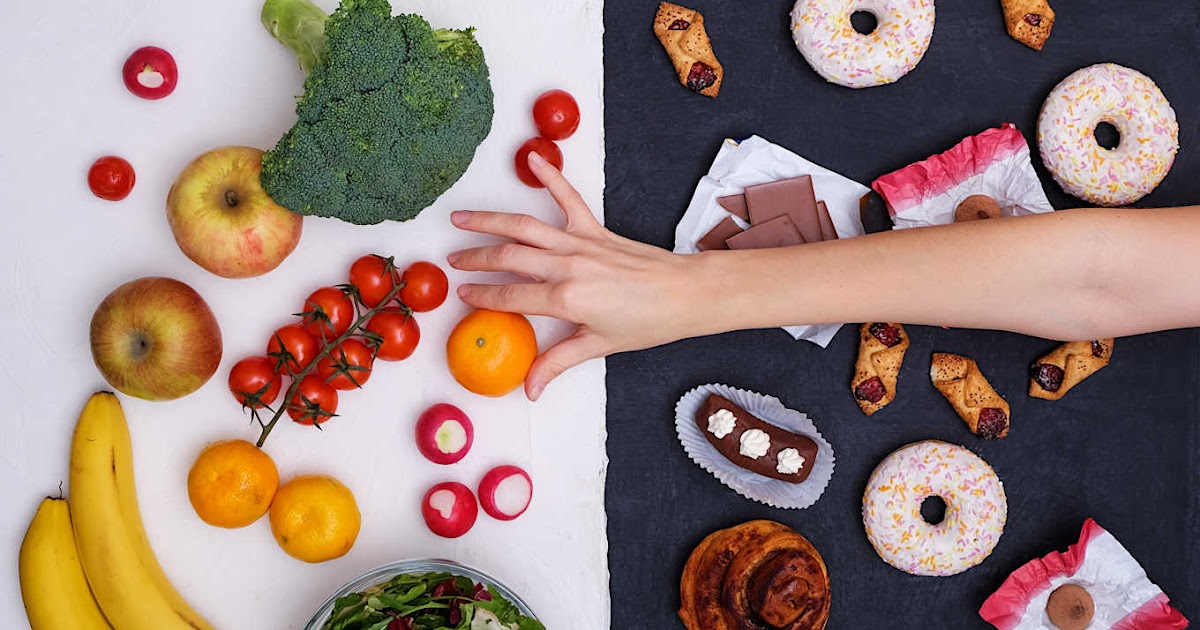 On the negotiating table, in shops, in cafe windows, in a drawer, at a party and on holidays... No wonder it's so hard for you to resist!
On the negotiating table, in shops, in cafe windows, in a drawer, at a party and on holidays... No wonder it's so hard for you to resist!
What to do:
Get rid of your addictions. There is no other way, alas. Only, PLEASE, one at a time, or you'll lash out. Choose to start with the product that interests you the least. For me, it was refined sugar. I understood that everything else is dearer to me, and I started with sugar. By choosing the most "independent" addiction to start with, you're more likely to be able to handle it. Victory will give you the strength to move on, and this is very, very important. When this addiction is completely gone, wait another month or two for the habit to fully take root, and then give up the next one.0125 enemy of your health . To help you - my videos about how not to get lost on the way to a new life.
Reason three: psychological addiction
In our office, right at the entrance, there is a coffee machine.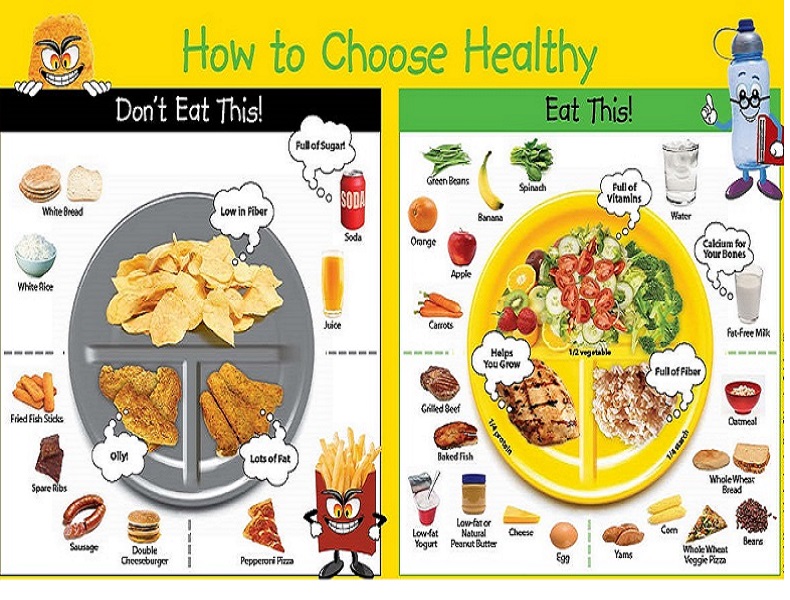 I used to make myself a cup of coffee EVERY day when I came to the office. By Friday, I was starting to worry that I would become addicted to caffeine this way, but magically I didn't even think about coffee during the weekend. And there is nothing magical here. I just don't have a habit of drinking coffee at home.
I used to make myself a cup of coffee EVERY day when I came to the office. By Friday, I was starting to worry that I would become addicted to caffeine this way, but magically I didn't even think about coffee during the weekend. And there is nothing magical here. I just don't have a habit of drinking coffee at home.
This example shows that we often drink and eat something not at all because of physiological addiction or because of the pranks of our microflora. We do it out of habit, that's all. For example, if you are used to snacking on candy after dinner, you will want it, regardless of the amount of food eaten. If you are used to ordering dessert at a restaurant and drinking coffee with a croissant at the airport (as I do :)), it will be difficult for you to give up these traditions. No wonder self-development experts advise introducing rituals into our lives.
Rituals (candy after dinner, picnic with wine, beer in front of the TV after work...) make our actions AUTOMATIC.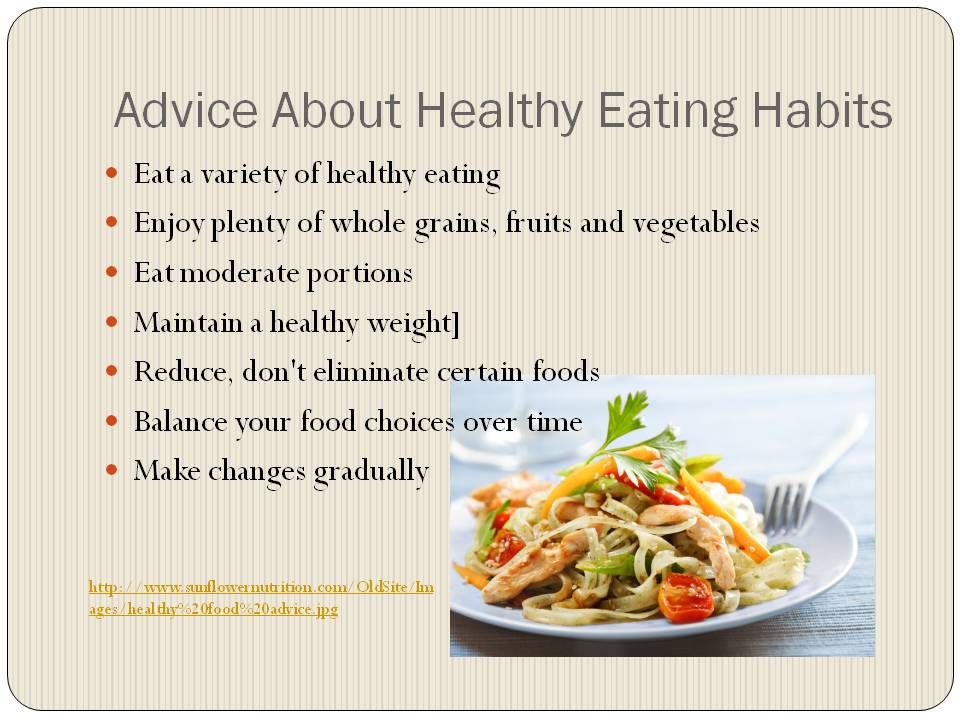 The meaning of the ritual is to release the energy that is spent on making decisions. This may be to our advantage, or it may work against us. If you consciously meditate for 15 minutes every morning, over time this process will become automatic and you won't have to remind yourself to meditate in the morning. The same principle applies to candy!
The meaning of the ritual is to release the energy that is spent on making decisions. This may be to our advantage, or it may work against us. If you consciously meditate for 15 minutes every morning, over time this process will become automatic and you won't have to remind yourself to meditate in the morning. The same principle applies to candy!
What to do:
Disrupt the usual rhythm. Move in small steps. Can't say no to candy after dinner seven times a week? Start with two. Swap the candy for something else, like walking around the office, talking to a friend, or at least a handful of nuts (not covered in chocolate!). In this way, you will break the ritual, and over time, you will become more conscious about what you eat (or not eat) after dinner. Instead of dessert at a restaurant, order a salad before the main course, and at the airport buy yourself tea and a new lipstick. By doing this, step by step, it will be much easier for you to deal with bad habits.
Another idea: start developing useful rituals. For example, start your morning with a smoothie. Once you get hooked, you no longer have to make the agonizing choice in the morning: eat a sandwich or a smoothie. For example, I replaced my coffee-machine ritual in the office with filling a water bottle and a thermos of tea. It was difficult only for the first two weeks: to fill the thermos, you had to first go to the office, and then return to the machine. But now I walk 500 steps more on a working day :)
Reason four: poor preparation for the process
Many of us lose in the fight against junk food, not only because of strong psychological and physiological dependence. We make our own life difficult. First, we wait for the right moment to change: so that this period does not coincide with vacation, with the reception of guests, with a birthday, and other “freelance” events. Then, realizing that such a moment will never come, we rush into battle. Unprepared. Without weapons and thoughtful tactics.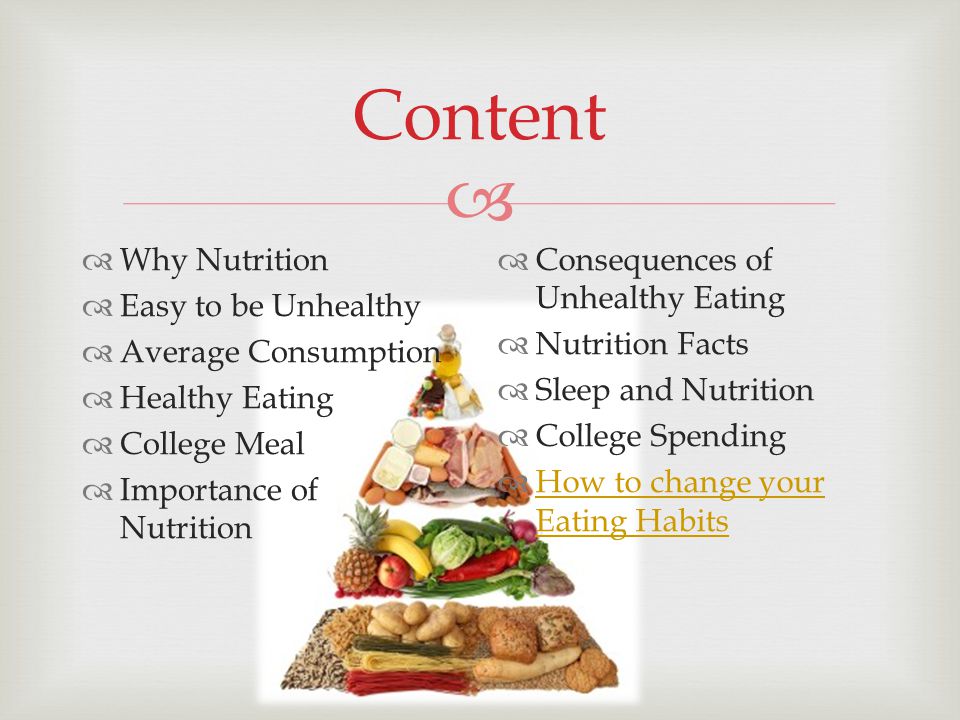 It is no wonder that at the very first birthday of a colleague, we still cut off a piece of cake for ourselves, “so as not to offend the birthday man,” and on the trip we eat the wrong sandwich, justifying ourselves by the fact that “there was nothing else.”
It is no wonder that at the very first birthday of a colleague, we still cut off a piece of cake for ourselves, “so as not to offend the birthday man,” and on the trip we eat the wrong sandwich, justifying ourselves by the fact that “there was nothing else.”
What to do:
Get ready!
Prepare the rear at home. If you have already decided to change your eating habits, do yourself a favor - free your home from the harmful products that you decided to say goodbye to. Why torture your psyche with shelves of sweets "for children and husband." At the same time, save their health. I already foresee your exclamations that your family will not allow you to throw out all the sweets from the house. Try to talk to them, ask them to support you. If a husband cannot live without sweets, let him at least put them in his briefcase. In general, what are the reserves for? War, fortunately, is not yet planned, and convenience stores are now at every turn.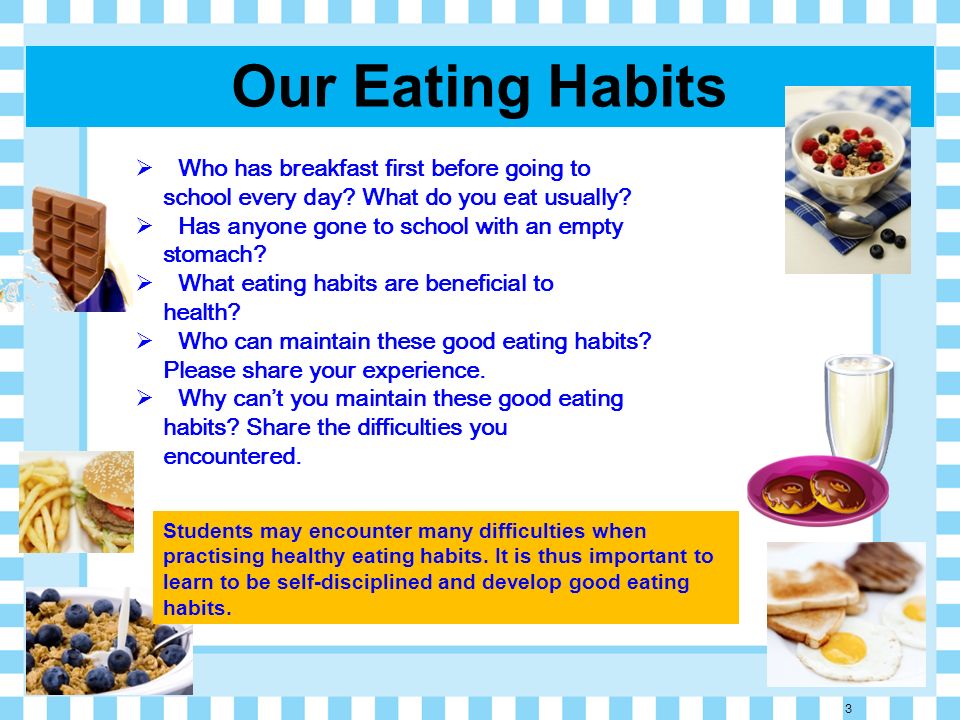 If someone from the household wants sweets, it is quite possible to follow him to the nearest kiosk.
If someone from the household wants sweets, it is quite possible to follow him to the nearest kiosk.
Get ready for other events as well. When you travel, take food with you. Before a colleague's birthday, visit her with a card, peck her on the cheek and, referring to urgent matters, bow out before the joint eating of the cake begins. If your office, like mine, has unhealthy joint breakfasts, bring food with you. For example, I bring smoothies. And, honestly, I didn’t give a damn when one of my colleagues disgustedly asks to remove “this terrible green mixture” away. (In general, it’s interesting: why is it not forbidden in society to say “fi” about healthy food, but it doesn’t occur to anyone to react the same way to a bun with butter and jam?)
Reason five: the illusion of simplicity of the process
Napoleon lost the war with Russia because he naively expected that it would be easy to defeat the Russians. Most of us, when starting the battle for health, underestimate the scale of the event.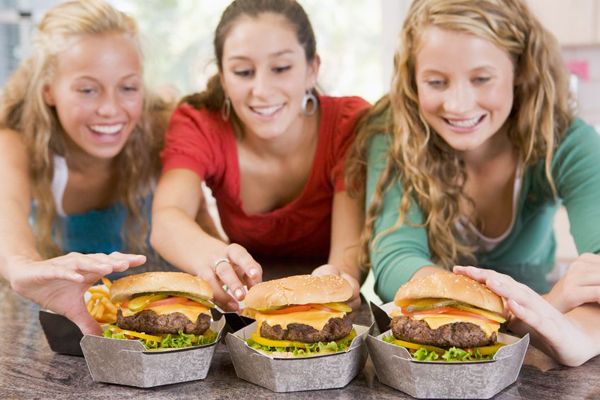 We believe that switching to the right breakfast or giving up dessert will be easy. But, as the previous four reasons show, this is not the case! We are fighting not only with the food habit, but also with a whole army of bacteria (we already have 10 trillion of them!) And with real physiological addictions, and with our rituals, and with society. We are not ready for such an effort, so most attempts to change nutrition end in failure.
We believe that switching to the right breakfast or giving up dessert will be easy. But, as the previous four reasons show, this is not the case! We are fighting not only with the food habit, but also with a whole army of bacteria (we already have 10 trillion of them!) And with real physiological addictions, and with our rituals, and with society. We are not ready for such an effort, so most attempts to change nutrition end in failure.
What to do:
Morally tune in that the process will be long. Understand that it won't be easy. Do not give up and, even if they break, return to the warpath as soon as possible. Do not hit yourself on the head for deviating from the plan, but on the contrary - indulge for every victory (preferably with something inedible, such as a massage or a new blouse). Outline an action plan. For example, if you can’t stand the thought of denying yourself something (forbidden fruit becomes even sweeter), leave one day a week in your schedule when you can still indulge in sweets.